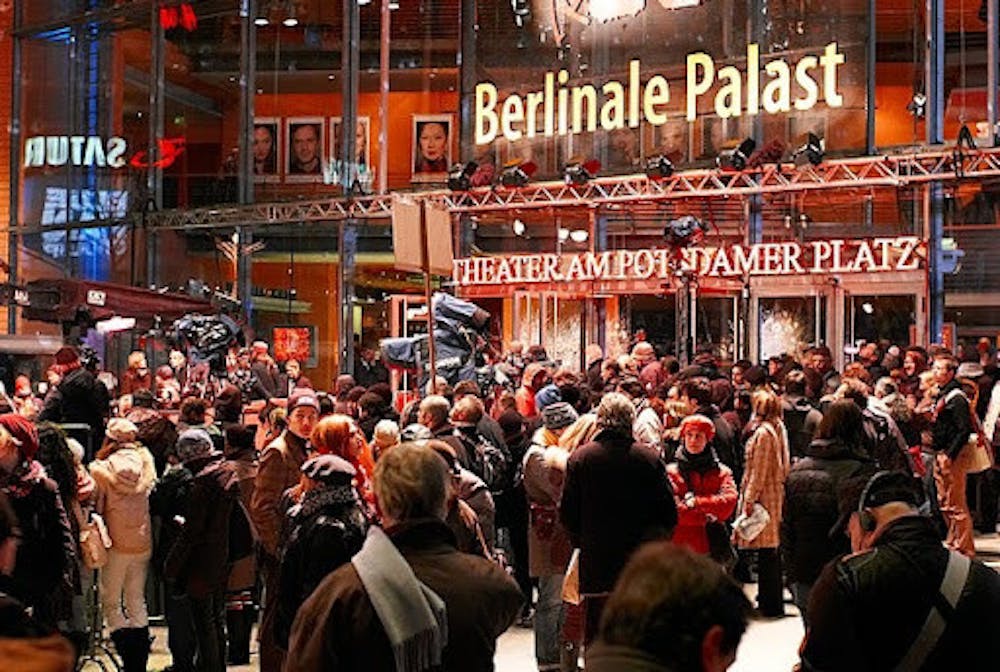By Madison Anidjar
Staff Writer
Director Yuval Abraham is contending with accusations of antisemitism and threats of violence after condemning the Israeli occupation of Palestine in his Berlinale acceptance speech.
On Feb. 25, Abraham’s documentary “No Other Land” won the Documentary Film Award and Panorama Audience Award at the Berlinale International Film Festival. The documentary follows Abraham, an Israeli journalist, and Basel Adra, a Palestinian activist, as they try to prevent Israeli forces from displacing the Palestinian residents of Masafer Yatta in the West Bank.
Co-Directors Abraham and Adra focused their acceptance speech on the issues they addressed in the film, as well as a humanitarian solution in Gaza.
Adra spoke first, explaining how it is hard for him to celebrate while his family is “being erased by [a] brutal occupation” and “tens of thousands of [his] people are being slaughtered and massacred by Israel in Gaza.”
“I ask one thing for Germany, as I am in Berlin here,” said Adra. “To respect the UN calls and stop sending weapons to Israel.”
Abraham spoke for longer, describing the disparities between his life as an Israeli and Adra’s life as a Palestinian.
“I want to say we are — we are standing in front of you now. Me and Basel are the same age. I am Israeli, Basel is Palestinian, and in two days we will go back to a land where we are not equal,” said Abraham.
“I am living under civilian law, and Basel is under military law. We live 30 minutes from one another, but I have voting rights and Basel [does not have] voting rights. I'm free to move where I want in this land. Basel is, like millions of Palestinians, locked in the occupied West Bank. This situation of apartheid between us, this inequality, it has to end.”
Abraham ended his speech by calling for a ceasefire in Gaza and “a political solution to end the occupation.”
The speech soon amassed millions of views after news outlets and individuals posted the video to YouTube and TikTok.
In one news segment, Israeli public broadcaster, Kan, criticized Abraham’s speech with a caption describing it as “antisemitic.”
Following the segment, Abraham began receiving death threats and asked Kan to apologize and remove the clip.
In a post to X, Abraham said, “A right-wing Israeli mob came to my family’s home yesterday to search for me, threatening close family members who fled to another town. I am still getting death threats and had to cancel my flight home.”
Kan has since removed the clip from their online platforms, and a spokesperson told Israeli newspaper Haaretz “that it would have been better to word the caption differently.” The spokesperson stopped short of issuing an apology, instead suggesting that “what was missing from Abraham's speech at the festival was Hamas, the October 7 massacre, and the hostages.”
German politicians such as Berlin Mayor Kai Wegner and Cultural Minister Claudia Roth also criticized Abraham and Adra’s statements.
“What happened yesterday at the Berlinale was an intolerable relativization. Antisemitism has no place in Berlin, and that also applies to the art scene,” wrote Wegner in a post on X. “Berlin is firmly on Israel’s side.”
Roth, on the other hand, made a confusing set of statements about Abraham and Adra. She described the speech as “shockingly one-sided and characterized by deep hatred of Israel.” However, images of the Berlinale audience showed that Roth applauded the speech, leading her office to issue a statement iterating that the minister clapped only for “the Jewish-Israeli journalist and filmmaker,” Abraham, and not his Palestinian counterpart.
In his post on X, Abraham also pushed back on the accusations of antisemitism from German politicians.
“As my Grandmother was born in a concentration camp in Libya and most of my Grandfather's family was murdered by Germans in the Holocaust, I find it particularly outraging that German politicians in 2024 have the audacity to weaponize this term against me in a way that endangered my family.”
Abraham concluded his post saying, “If this is what you’re doing with your guilt for the Holocaust – I don’t want your guilt.”
“No Other Land” will premiere internationally at the Copenhagen International Documentary Film Festival on March 15.







